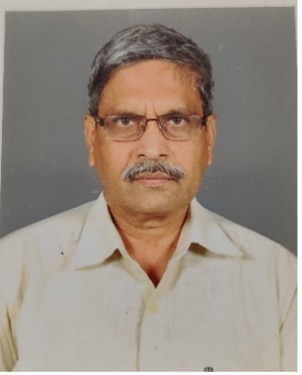Facing PG practical examination in ophthalmology is not difficult. However, the student must prepare properly to face it. Please remember the examiners are coming to help only. Therefore, the student should not be afraid of the examiners.
Preparations for the practical exams
During the course
The preparation to face the exams is a continuous process starting from the beginning of the course. Students must discuss about the patients with classmates, seniors also, apart from presenting to the teachers. Always take the guidance of teachers. Don’t feel shy to ask any doubts to your teachers. Teachers will definitely help you. Don’t hesitate to present cases many times before appearing for the exams. Nothing wrong with presenting the same patient to different consultants. This will help you to know the different views of different teachers. These types of approaches during your residency period will give you enough confidence.
Learn the method of interpreting different investigations charts like Corneal topography, B scan, FFA charts, etc., from the concerned department consultants.
One week before the exam
Relaxation is a must:
Try to read the important cases. Try to discuss with your classmates. Keep one friend (maybe a senior) as an examiner and let him ask questions and practice. (Mock examination practice). Try to discuss all the examination-oriented cases. Practice refraction procedures like retinoscopy and practice the art of transpositions and calculations.
Day before examinations
Don’t be panicky. Eat well and sleep well. Should go to bed at least by 10 pm. Sleep for seven hours. The next day you will be fresh to face the examinations. Don’t read throughout the night before practical. Don’t take any drugs to keep you awake
On the day of examination
First, you must be decently dressed. This applies to both sexes. You can always show more confidence on your face than you feel. Wear a clean, ironed apron, and display the roll number prominently. Male candidates wear shoes and go to the exam hall. Better wear a full sleeve shirt. A plain shirt is better. Girls can wear their regular dress.
Carry all necessary accessories.
Including pen, Colour pencils, +90 dioptre (D) lens, Loupe, Scale (preferably transparent plastic), Torch two in number, ophthalmoscope (direct if you have one), indirect ophthalmoscope, +20 D lens, stethoscope, targets for fixations, knee hammer, tuning fork( If you have). Better to have these gadgets so that you need not waste time in the examination hall.
In the examination hall
Do not hesitate to ask for necessary things like cotton, fluorescein strips, strips for Schirmer's test, etc., if you do not have them. Also, ask for the charts to draw Retinal detachment and any fundus cases. Carry bangles (rubber or plastic) to draw a circle to draw a retina diagram if the retinal charts are not available in the exam hall. Don’t see any prescription chit or any chits from the patients.
If the patient has eye drops, don’t see them. This may misguide you. Examine the patient with respect due to an elderly person. Ask for his permission before you start the examination. To say a patient is not cooperative is your incompetency. Be courteous to the patient. They may not understand your instructions. You can request the exam hall in charge to help you or can ask for interpreters. Never take Clues from anyone in the exam hall
Negative history is equally important to a certain diagnosis and will also show your depth of knowledge regarding the differential diagnosis
History and complaints presentation should be chronologically arranged, and at the end of history presentation, a picture of possible diagnosis should emerge
History needs to be selective specific to the patient. Slit-lamp examination, retinoscopy, applanation tonometry, indirect ophthalmoscopy, +90 D fundus examination are part of ophthalmic examinations and are not separate investigations. Always record all the signs truthfully. Try to fit the diagnosis to your signs. Do not fit the signs to suit your diagnosis. Try to finish the examination and writing work in the allotted time
If you are not able to diagnose, don’t be panicky. Tell your findings. Correlate your symptoms and go for a differential diagnosis.
It is better to write a complete plan for investigations and management on your paper but not read from it. Keep it as a reference. Actually, writing makes your thought process smooth and makes your presentation more impressive and confident.
A colored diagram of the patient is desirable to facilitate the diagnosis ( Practice the technique of drawing the Corneal problems and Retinal problems in the charts with color-coding during the residency period. This will definitely help during examinations )
ReadDocumentation and Drawing in Ophthalmology
OSCE examination
If it is there, try to read the question correctly. Answer properly. Read the instructions for the OSCE exam, See any negative mark is there or not. If it is there, be careful while writing the answer.
Never forget to write your number on the answer sheet.
In clinical exam and viva
- Don’t discuss with your friends the type of questions asked by the examiners when you are waiting for your turn. This may make you tensed. Instead, relax when you are in the waiting room.
- But don't appear rude or overconfident. Try to accept the clues and logically modify your answers. Give complete answers to the question, which has been asked.
- Be frank if you do not know the answer so that some other topic can be discussed
- Be composed. Be bold. Never lose common sense! It is okay to make mistakes( if you can correct them quickly with a sorry.
- Let your confidence show up on your face. Keep a smile on your face always
- The Golden rule remains that ‘Examiner is always right.’ Whatever the examiner tells you, please accept. Never argue with the examiner. This is a dangerous situation in the exam.
